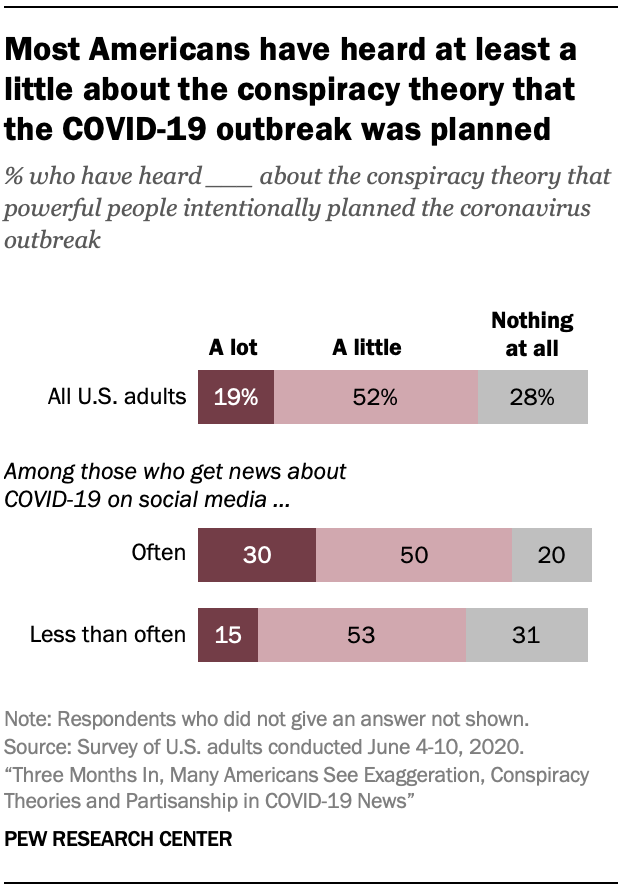
A conspiracy theory video suggesting, among other things, that the COVID-19 pandemic was planned received national attention in early May. While only one-in-ten Americans say they watched any of the video itself, far more have heard of the broader theory that powerful people intentionally planned the coronavirus outbreak.
A majority of U.S. adults (71%) say they have heard at least “a little” about the conspiracy theory that the COVID-19 outbreak was intentionally planned by powerful people, including 19% who say they have heard “a lot” about this theory. Those who frequently turn to social media for news about the outbreak are especially likely to be aware of the theory: 30% of those who often get COVID-19 news from social media say they have heard “a lot” about the theory that the outbreak was intentionally planned, compared with half as many (15%) among those who turn to social media for COVID-19 news less often.
Roughly equal shares of each party (72% of Republicans and those who lean toward the GOP and 70% of Democrats and Democratic leaners) say they have heard at least a little about the conspiracy theory.
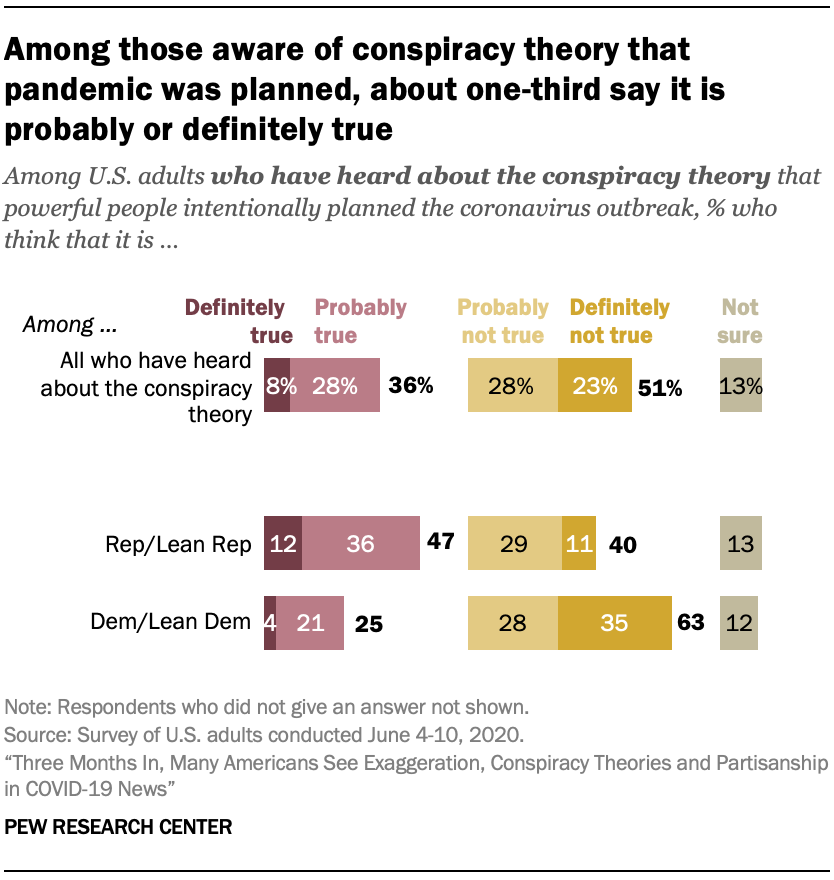
Among those who are aware of the conspiracy theory, substantial portions give it some credence, though Americans overall are more likely to say it is probably or definitely not true.
About a third of those who have heard this claim (36%) – a quarter of all U.S. adults – say that they think it is “definitely” (8%) or “probably” (28%) true. Meanwhile, roughly half of those aware of the conspiracy theory (51%) say it is false, including 23% who say it is “definitely not true.” Another 13% of those who have heard of the claim that the pandemic was planned say that they are not sure whether it is true or not.
While Republicans and Democrats are about equally likely to have heard about the unsubstantiated theory, large partisan differences emerge when it comes to whether they think there is truth to it. About half (47%) of Republicans who have heard about the theory that the outbreak was intentionally planned (34% of all Republicans) say that it is definitely or probably true. Only about half as many Democrats who have heard of the conspiracy theory (25%) share this view. Conversely, close to two-thirds of Democrats who have heard of the claim (63%) say it is not true, including 35% who say it is definitely not true. Among Republicans aware of the claim, four-in-ten say it is probably or definitely not true, with only 11% saying it is definitely false.
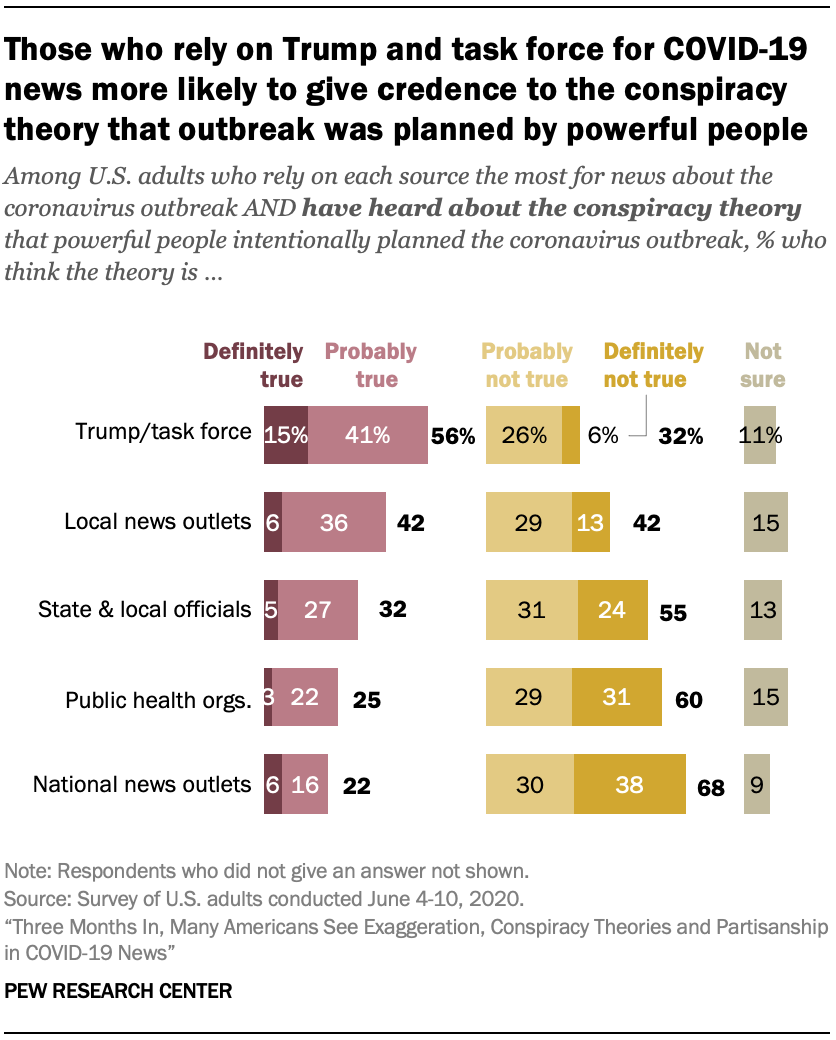
Americans’ assessments of this theory also differ substantially based on the sources of information they turn to most for news about the outbreak. Among Americans who have heard of the claim that powerful people planned the pandemic, a majority of those who mainly rely on Trump and the White House task force for COVID-19 news (56%) say the conspiracy theory is probably or definitely true. That outpaces those who rely most on local news outlets (42% who have heard of the theory think it is likely true), state and local officials (32%), public health organizations (25%) and national news outlets (22%). Those who rely mainly on national news outlets and are aware of the theory are most likely to say the theory is probably or definitely not true (68%).
Even among Republicans, those who rely on Trump and the task force for COVID-19 news stand out. Among Republicans who have heard about the conspiracy theory, 57% of those who look to Trump and the White House for COVID-19 news say that the theory is probably or definitely true, compared with 43% of Republicans who turn primarily to other sources.
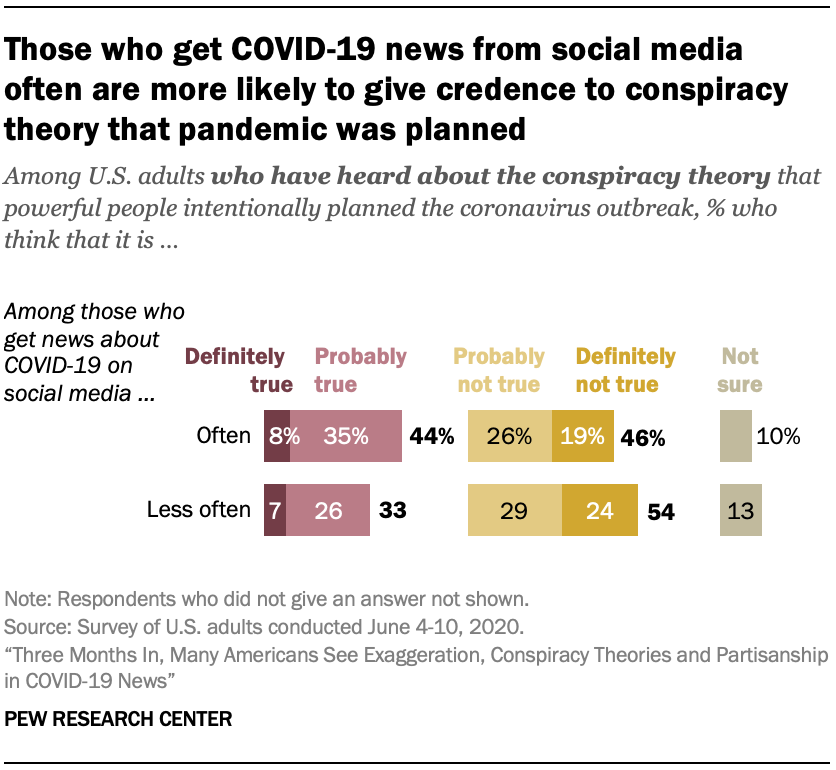
Among U.S. adults who have heard about the theory, those who often look to social media for COVID-19 news also are more likely to say that the theory is at least probably true: 44%, versus 33% of those who get COVID-19 news on social media less frequently (or never).
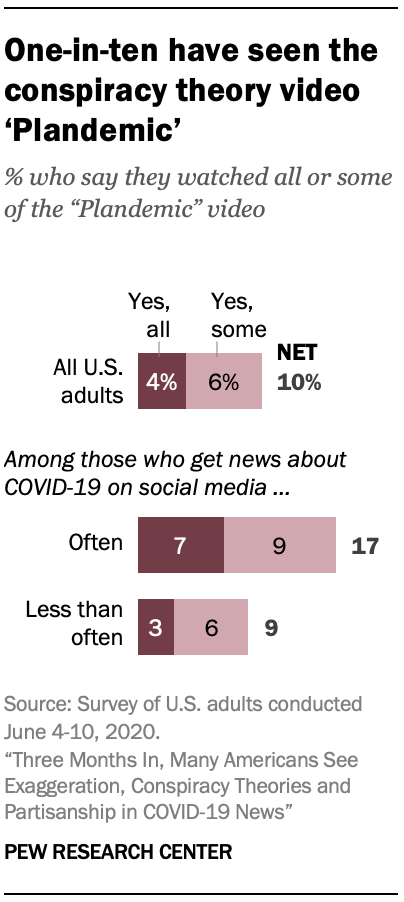
The “Plandemic” video that went viral in early May, which specifically claimed that the COVID-19 outbreak was part of a scheme by global elites to profit off of infectious diseases, has had a far narrower reach than the more general conspiracy theory that the outbreak was planned by people in power. Just 10% of Americans say they have watched the video, including only 4% who say they have watched it in its entirety. Again, those who often turn to social media for news about the outbreak are more likely to have seen all or part of the video (17%), which is likely connected to the fact that much of the video’s viral spread occurred on social media platforms.
While there is a partisan divide over the legitimacy of the theory in general, similar shares of both Republicans and Democrats say they have watched the video (11% and 10%, respectively).